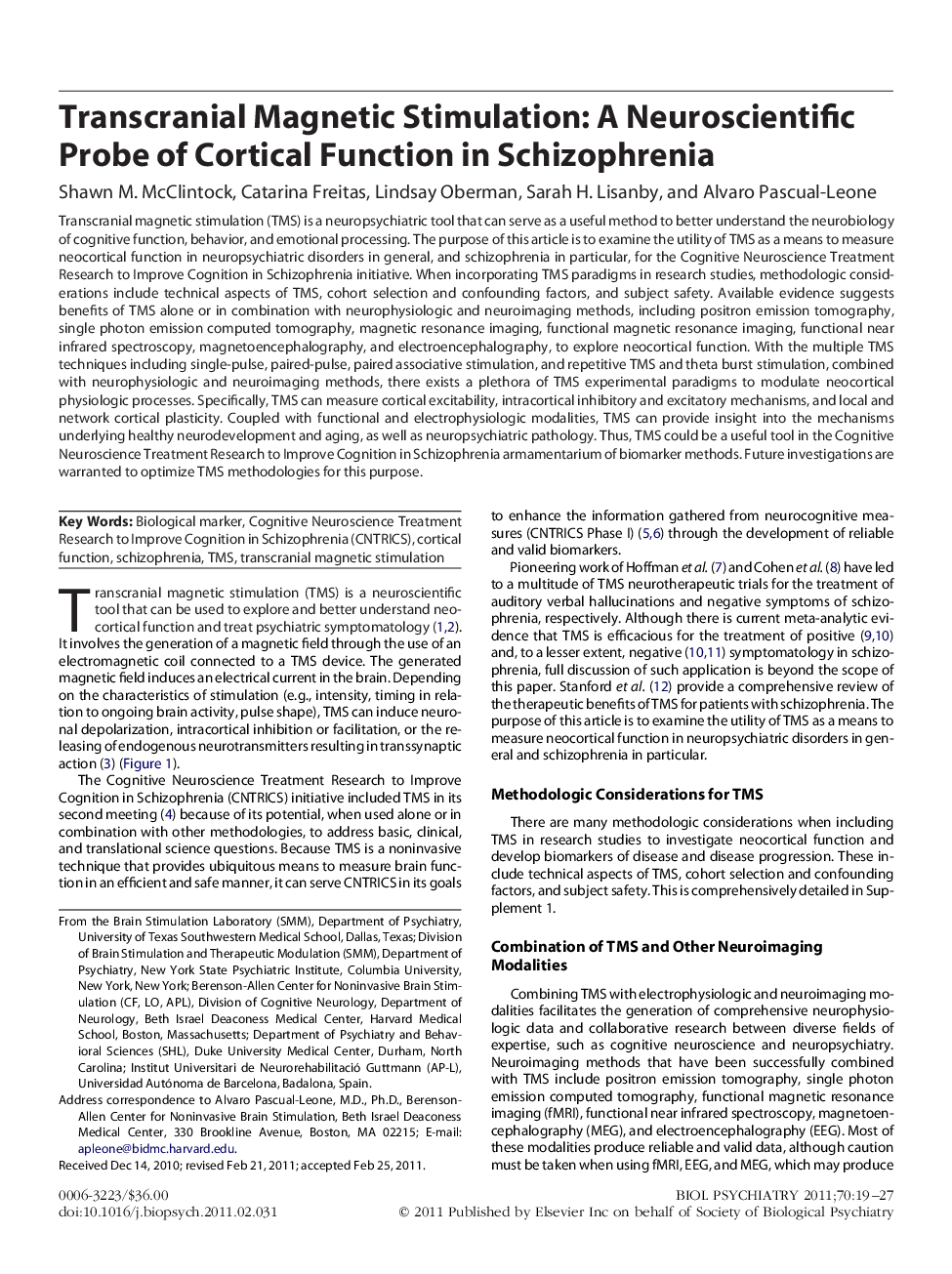| Article ID | Journal | Published Year | Pages | File Type |
|---|---|---|---|---|
| 4178328 | Biological Psychiatry | 2011 | 9 Pages |
Transcranial magnetic stimulation (TMS) is a neuropsychiatric tool that can serve as a useful method to better understand the neurobiology of cognitive function, behavior, and emotional processing. The purpose of this article is to examine the utility of TMS as a means to measure neocortical function in neuropsychiatric disorders in general, and schizophrenia in particular, for the Cognitive Neuroscience Treatment Research to Improve Cognition in Schizophrenia initiative. When incorporating TMS paradigms in research studies, methodologic considerations include technical aspects of TMS, cohort selection and confounding factors, and subject safety. Available evidence suggests benefits of TMS alone or in combination with neurophysiologic and neuroimaging methods, including positron emission tomography, single photon emission computed tomography, magnetic resonance imaging, functional magnetic resonance imaging, functional near infrared spectroscopy, magnetoencephalography, and electroencephalography, to explore neocortical function. With the multiple TMS techniques including single-pulse, paired-pulse, paired associative stimulation, and repetitive TMS and theta burst stimulation, combined with neurophysiologic and neuroimaging methods, there exists a plethora of TMS experimental paradigms to modulate neocortical physiologic processes. Specifically, TMS can measure cortical excitability, intracortical inhibitory and excitatory mechanisms, and local and network cortical plasticity. Coupled with functional and electrophysiologic modalities, TMS can provide insight into the mechanisms underlying healthy neurodevelopment and aging, as well as neuropsychiatric pathology. Thus, TMS could be a useful tool in the Cognitive Neuroscience Treatment Research to Improve Cognition in Schizophrenia armamentarium of biomarker methods. Future investigations are warranted to optimize TMS methodologies for this purpose.
